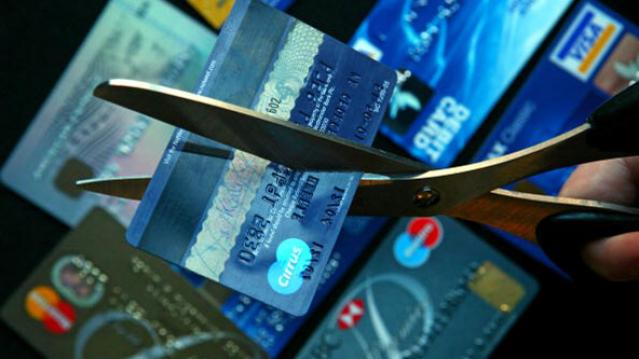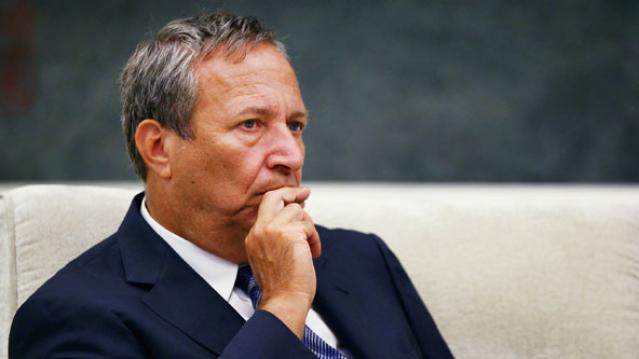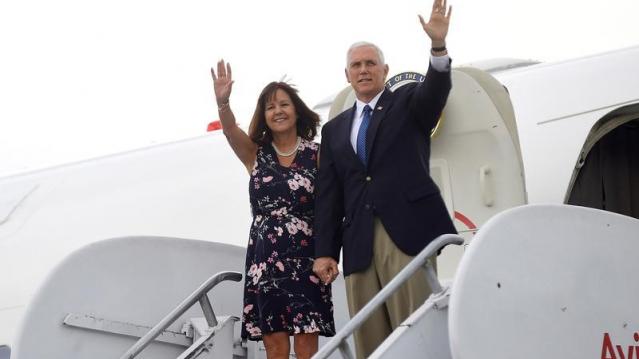How to Defuse Exploding Consumer Credit Debt

The average household had a credit card balance of $7,177 in the first quarter, the highest level in six years, according to a new report by CardHub.
Total consumer credit card debt in the U.S. amounted to more than $57 billion for the quarter, despite paying off $34.7 billion in the quarter.
There was some good news in the report: Credit card defaults for the quarter declined more than $350 million to the lowest rate since 1995, and first quarter debt reduction was 7 percent large than those of the past two years.
About a third of households with credit card debt carries a balance from month to month claims a separate study by the National Foundation for Credit Counseling.
Meanwhile, the number of credit card accounts is increasing. In the first quarter, TransUnion says there were 359.64 million credit card accounts, up 4 percent from the first quarter of 2014.
CardHub estimates that net credit card debt for the year will be $55.8 billion, roughly the same level as last year.
Consumers with high levels of credit card debt could benefit from taking advantage of some of credit card transfers, which are among the sweetest they’ve been in years, with many issuers offering zero-percent transfers for a year or more.
Look for a deal that includes no transfer fees or annual fees. Rolling over debt only makes sense if you can pay it off before or immediately after the introductory rate expires.
Quote of the Day - October 16, 2017
Speaking at a cabinet meeting on Monday, President Trump said:
"Obamacare is finished, it's dead, it's gone ... There is no such thing as Obamacare anymore."
Click here for the video.
Poll: Trump Tax Cuts Favor the Wealthy; Deficit Should Be Higher Priority
Trump and the GOP still have work to do if they want to convince Americans that their tax plan won’t mostly help the rich. A CBS News Nation Tracker poll released Sunday finds that 58 percent say the tax reforms being discussed favor the wealthy, while 19 percent say it treats everyone equally and 18 percent say it favors the middle class.
The poll also found that 39 percent say that cutting the deficit should be a priority, even if it means taxes stay the same. About half as many people said cutting taxes should be prioritized even if the deficit rises.
The poll, conducted by YouGov, surveyed 2,371 U.S. adults between October 11 and 13. Its margin of error is 2.5 percent.
Coporate Tax Cut Could Be Phased In
House tax writers (at least some of them) are worried that slashing the corporate tax rate found will push the deficit higher in a hurry – an analysis by the Tax Policy Center found that cutting the rate to the stated goal of 20 percent would cost $2 trillion over a decade. One way to soften the fiscal blow would be to phase in the reduction over three to five years. House Republicans say such an approach would reduce the size of the lost revenue by half.
Larry Summers: GOP Tax Claims Are 'Made-Up'

Former U.S. Treasury Secretary Lawrence Summers isn't happy with the Republican tax plan, and it's not just because he has a different set of ideas as a Democrat. More fundamentally, he says Republicans are making false claims: “When you have -- and I hate to be in a position of using this word about our government -- when you have senior economic officials making claims that are made-up ... it’s very hard to have a dialogue, and compromise, and get to a good place.”
Summers is also worried about the effects of a tax cut for the rich during a time of considerable social turmoil: “There’s a lot of unhappiness and anger out there … It’s really hard to see why focusing a corporate tax cut on those at the very high-end is going to do much to assuage that anger.”
How Much Did Mike Pence’s NFL Walkout Cost Taxpayers?

Vice President Mike Pence’s decision to attend an NFL game between the Indianapolis Colts and San Francisco 49ers yesterday and then leave after some 49ers players kneeled during the national anthem was quickly criticized by some as a planned piece of political theater — and a somewhat expensive one at that. “After all the scandals involving unnecessarily expensive travel by cabinet secretaries, how much taxpayer money was wasted on this stunt?” Rep. Adam Schiff (D-CA) tweeted Sunday afternoon.
The answer, CNN reports, is about $242,500: "According to the Air Force, flying a C-32, the model of plane used for Air Force 2, for one hour costs about $30,000. Pence's flight from Las Vegas to Indianapolis Saturday took about three hours and 20 minutes, so it cost about $100,000. Pence then flew from Indianapolis to Los Angeles on Sunday, which took about four hours and 45 minutes, costing about $142,500."
President Trump defended Pence’s trip, tweeting that it had been “long planned.” CNN also reports that some of the costs of Pence's flight from Indianapolis to Los Angeles will be paid back by the Republican National Committee because the vice president is attending a political event there.
